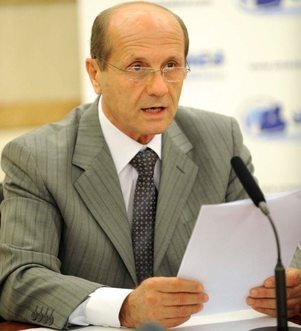Report: Suleiman Advises Charbel to Prepare for Polls Regardless of Vacancies
إقرأ هذا الخبر بالعربية
President Michel Suleiman informed Interior Minister Marwan Charbel that he should continue his preparations for the 2013 parliamentary elections irrespective of vacancies in several posts, An Nahar daily reported on Thursday.
The newspaper quoted Charbel as telling a cabinet session held at Baabda palace on Wednesday that the government was yet to appoint governors and directors of several departments in the interior ministry - posts necessary to prepare for the polls.
But Suleiman told him that his preparations for the elections should go ahead irrespective of the appointments which if they take place then “it would be good.”
“However, if they don't take place then the elections could be held despite the vacancies as it happened in the previous elections,” the president reportedly said.
Charbel reiterated to An Nahar that he was preparing for the polls based on the 1960 law as long the parliament hasn't yet adopted a new draft-law.
The law, which is based on a winner-takes-all system and adopts the qada as an electoral district, was used in the 2009 elections after a partial amendment in 2008.
The minister reiterated that he was making preparations that require civil servants to submit their resignations if they want to announce their candidacies.
Efforts are also exerted to establish the committee that would oversee the elections and for allowing Lebanese expatriates to vote in Lebanon's missions abroad, he told An Nahar.
Charbel denied there were differences on the names of candidates for the posts of governors, saying the appointments will be made soon.
Parliament has so far failed to approve an electoral law over differences between the majority and the opposition. Although the cabinet approved a bill that divides Lebanon into 13 districts and is based on proportional representation, the majority of March 14 opposition blocs and the centrist bloc of MP Walid Jumblat's National Struggle Front rejected it.
The country plunged in a political crisis after March 14 boycotted parliamentary activity in the aftermath of the Oct. 19 assassination of Internal Security Forces Intelligence Branch chief Wissam al-Hasan.
Despite the announcement of the opposition MPs that they would only participate in the meetings of a parliamentary subcommittee tasked with drafting an electoral law, their declaration is yet to materialize.



